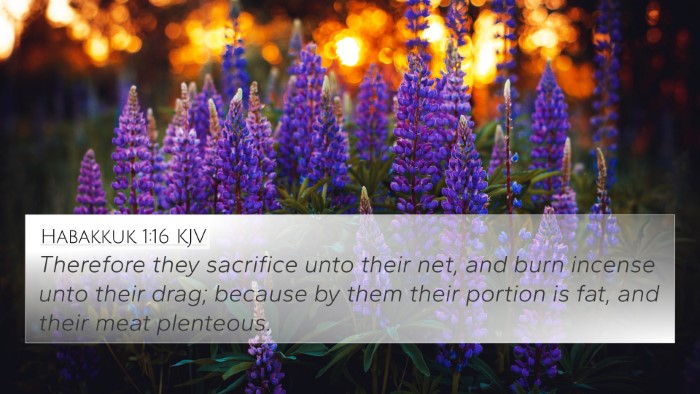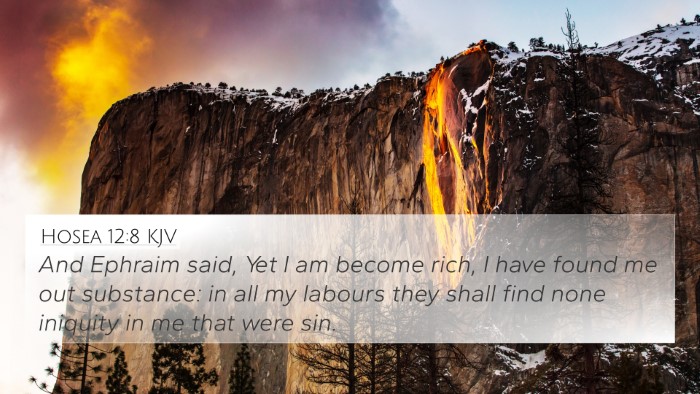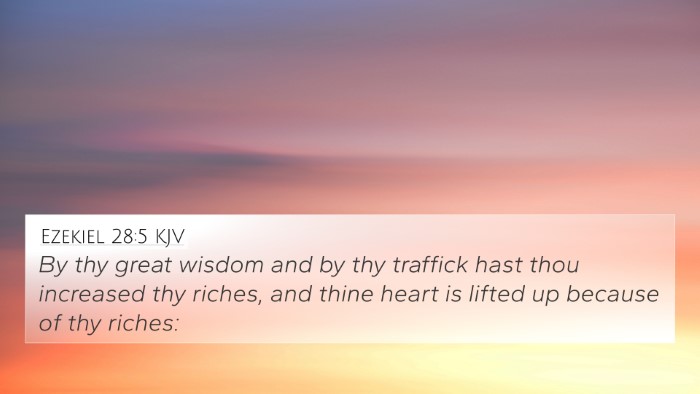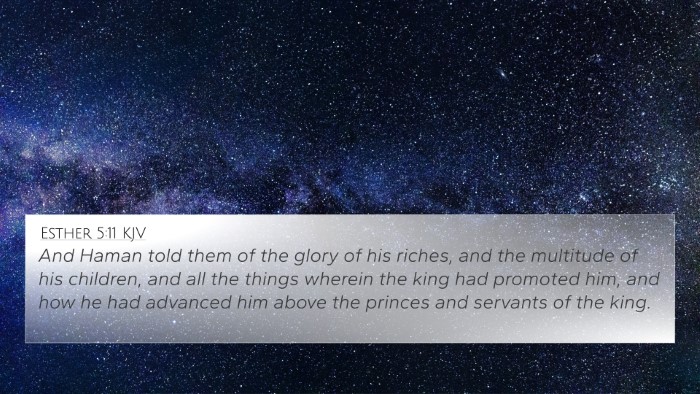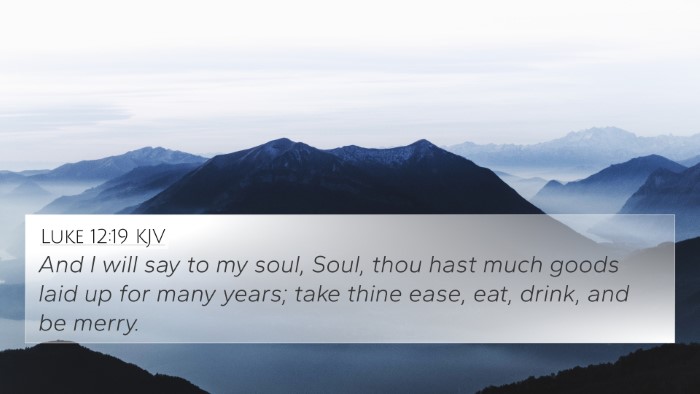Understanding Job 31:25
Job 31:25 states: "If I have rejoiced because my wealth was great, and because my hand had gotten much." This verse comes from a larger discourse where Job is asserting his integrity and righteousness in the face of his sufferings. Job defends himself against accusations and lays out the principles that guided his life, especially regarding the right use of wealth and the value of humility.
Verse Overview
In this verse, Job reflects on the dangers of finding joy in material wealth. He recognizes that wealth can lead to a sense of self-sufficiency that distances one from reliance on God. Job's emphasis here serves as a reminder that true joy does not stem from earthly possessions.
Bible Commentary Insights
- Matthew Henry: Henry suggests that Job’s acknowledgment of wealth is not inherently sinful; rather, it is the attitude towards wealth that matters. He cautions against pride and self-importance that often accompany riches.
- Albert Barnes: Barnes interprets this verse as a denial of the charge that Job rejoices in his prosperity instead of his spiritual state. Wealth should not be the source of one's joy – true contentment lies in a relationship with God.
- Adam Clarke: Clarke highlights that Job's statement presents a crucial inquiry into human nature: the propensity to derive pleasure from material gain instead of spiritual fulfillment, leading to moral and ethical decay.
Thematic Connections
This verse can be related thematically to several other biblical concepts:
- The use of wealth: Proverbs 11:28 – "He who trusts in his riches will fall, but the righteous will flourish like foliage."
- True joy versus materialism: Matthew 6:19-20 – "Do not lay up for yourselves treasures on earth...but lay up for yourselves treasures in heaven."
- Integrity under trial: James 1:12 – "Blessed is the man who endures temptation; for when he has been approved, he will receive the crown of life."
- God's provision: Philippians 4:19 – "And my God shall supply all your need according to His riches in glory by Christ Jesus."
- Wealth's fleeting nature: Ecclesiastes 5:10 – "He who loves silver will not be satisfied with silver; nor he who loves abundance, with increase."
- Contentment in poverty and wealth: 1 Timothy 6:6-10 – "Now godliness with contentment is great gain."
- The heart's true treasures: Luke 12:34 – "For where your treasure is, there your heart will be also."
Connecting Bible Verses
Job 31:25 connects with several other Bible verses that emphasize the character of wealth and the heart's affections:
- Proverbs 30:8-9: Seeking neither poverty nor riches, understanding that both can lead to different forms of temptation.
- Luke 16:13: "No servant can serve two masters; for either he will hate the one and love the other..." highlighting the choice between wealth and God.
- Matthew 19:24: "And again I say to you, it is easier for a camel to go through the eye of a needle than for a rich man to enter the kingdom of God," emphasizing the spiritual blindness wealth may cause.
- 1 John 2:15: "Do not love the world or the things in the world..." stressing the danger of materialistic attachments.
Cross-Referencing Tools
When studying Job 31:25, utilizing resources such as a Bible concordance or a Bible cross-reference guide can enhance understanding of how this verse relates to others. These tools help in:
- Identifying connections between Old and New Testament themes.
- Conducting a comparative analysis of cross-references.
- Utilizing a cross-reference Bible study method to explore related theological insights.
Conclusion
Job 31:25 serves as a profound reminder not only of the perils of relying on riches but also of the importance of maintaining spiritual integrity amidst life's trials. The connections with other scripture deepen the understanding of this verse, providing a richer context for reflection and application. By embracing tools for Bible cross-referencing, one can dive deeper into the inter-Biblical dialogue that enhances our spiritual growth and comprehension of divine truths.







